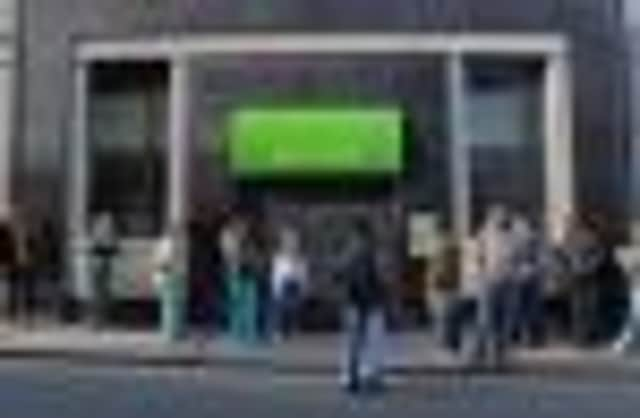8,000 more Scots ‘will be thrown out of work by end of the summer’


An analysis of jobless figures by the Institute for Public Policy Research think tank showed unemployment will not peak until at least September, with the total set to rise by about 100,000 across the UK.
Scotland will see a rise of around 8,000 in its unemployment total, which currently stands at about 234,000.
Advertisement
Hide AdAdvertisement
Hide AdThe North West, London, Yorkshire and Humberside and the East of England will see the highest increases in unemployment, although the jobless total is predicted to fall in the West Midlands, Northern Ireland and the South West.
Labour finance spokesman Ken Macintosh said: “If anyone was in any doubt about the scale of Scotland’s unemployment crisis, these highly concerning forecasts will be a wake-up call.
“Scottish families worried about the future will be looking for some sort of response to these huge job losses coming down the line.
“Sadly, Scotland is caught between a Tory government determined to impose deep cuts whatever the consequences and a SNP government distracted by the referendum and incapable of getting the country’s jobs crisis under control.”
The IPPR said it expected 50,000 more men and a similar number of women will become unemployed this year as public sector jobs continue to be cut, while more than 40,000 of those becoming jobless will be under the age of 25.
Unemployment stands at 2.67 million UK-wide, a jobless rate of 8.4 per cent, the highest since 1995, with more than a million 16 to 24-year-olds out of work. New figures later this month are expected to show another increase in the figures.
Scottish Government finance secretary John Swinney said ministers are working to attract new investment and pointed to “recent successes” with the renewables giant Gamesa’s decision to locate in Leith, creating 800 new jobs, and GlaxoSmithKline’s £100 million expansion plans for sites in Montrose and Irvine.
“These developments are positive indications of economic recovery in Scotland, but the process of recovery needs the big push of increased capital investment so that it can continue to move forward,” he said.
Advertisement
Hide AdAdvertisement
Hide Ad“We have a £300m list of shovel ready projects, to support jobs and benefit communities all across Scotland, which we submitted to the UK government at the request of the Prime Minister, but it was ignored in the Chancellor’s Budget.”
Kayte Lawton, IPPR senior research fellow, said: “The personal tragedy of the slow economic recovery is the way unemployment will continue to rise over the next year, even once the economy begins to grow.
“This has been the longest recession and the slowest recovery that Britain has ever experienced.
“The risk is that high unemployment becomes a permanent feature of the UK economy, as it did in the 1980s.”